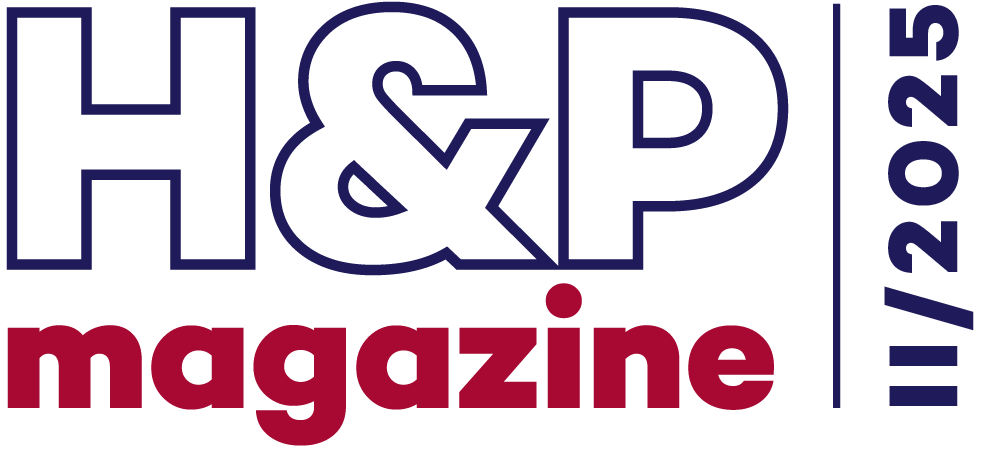Germany’s new government plans to turn recession-hit Germany into a “locomotive of Europe” moving forward. So, what will change under the leadership of the new chancellor? And how can Czech and Slovak entrepreneurs benefit from this?
In its 2026 budget, Germany’s new government plans record investments totalling EUR 126.7 billion (approximately CZK 3.1 trillion).
Since May, Germany has been led by a new government headed by Chancellor Friedrich Merz. It is a grand coalition of the CDU/CSU and the SPD. Expectations of the new cabinet are high among our western neighbours. Germany, the world’s third-largest economy, has been in recession for two consecutive years and the outlook for the coming months offers little hope for significant improvement.
However, the new government promises changes that aim to make Germany the “locomotive of Europe”. Even before taking office in May, the new government scored its first success by securing Bundestag approval – thanks to support from outgoing Chancellor Scholz’s administration – for a package of up to EUR 1.5 trillion. This package allows Germany to exceed its current debt brake, provided the funds are used for clearly defined purposes, despite the country’s relatively low debt levels.
Bureaucracy and digitalisation
One of the government’s top priorities is streamlining bureaucracy. In a symbolic first move, it reduced the number of government commissioners and coordinators by 25 during its inaugural session. More significantly, it aims to ease the administrative burden on businesses by eliminating excessive notification and reporting requirements. Among the proposals under discussion is the repeal of the Supply Chain Due Diligence Act (Lieferkettengesetz).
The government also plans to accelerate the digitalisation of public administration. This process, including government spending on IT, will be managed by the newly established Federal Ministry for Digitalisation and State Modernisation (Bundesministerium für Digitales und Staatsmodernisierung). Among its goals are the introduction of digital identity, the interconnection of registries (based on the “once only” principle for data provision), more efficient data usage, the launch of a digital health card, the acceleration of company formation processes, and improved cooperation between the federal government, states, and municipalities.
Germany also wants to actively participate in shaping digital policy and cooperation at the level of the EU, G7, and G20, and aims to play a leading role in the implementation of the EU AI Act and in coordinating regulatory and technical requirements for artificial intelligence systems.
If you operate in IT or digitalisation, this opens up a significant opportunity. German demand for software solutions, digital services, cybersecurity, and AI technologies is expected to grow rapidly. Czech companies with innovative products or experience in public IT projects can become valuable suppliers or partners.
Infrastructure
The government also wants to direct major investments into modernizing outdated and underfunded infrastructure. A special fund for infrastructure investments will contain EUR 500 billion (approximately CZK 12.3 trillion), which will be allocated to roads, bridges, railways, and other transport routes for goods, as well as to schools and kindergartens. The cabinet will also support electromobility. By the end of this legislative term, at least half of German households should have access to fibre-optic networks, and 5G coverage should be nationwide. Investments will also strengthen civil defence, and funding will be increased for hospitals and education infrastructure (including school digitalisation). Funds will also go into science and research.
If you operate in construction or focus on technology, you can benefit from these planned massive investments in infrastructure. Geographic proximity, high expertise, and competitive pricing of Czech companies are all advantages with which you can compete for public contracts and gain new orders from state and regional contracting authorities for the modernisation of roads, railways, hospitals, etc.
Utilities and energy sectors
Germany wants to continue significantly investing in its transmission network, modernize it, and integrate renewable energy sources. At the same time, it will adopt measures to reduce energy costs and thereby increase and maintain the competitiveness of energy-intensive sectors or the expansion of renewable sources. Industrial hubs are to be connected to a nationwide hydrogen network. Germany will continue supporting investments aimed at improving building insulation and modernizing heating systems. The government also wants to develop central heating infrastructure, as well as hydrogen and CO2 distribution systems.
These efforts are designed to attract manufacturing companies, particularly in the semiconductor and pharmaceutical sectors. This strong focus on energy sector transformation presents numerous opportunities for Czech businesses active in renewable energy, energy efficiency, electrical installations, hydrogen technologies, and smart energy management. Demand for innovative solutions and components for transmission networks, energy-saving technologies, and decarbonization projects is expected to grow. This could open doors for Czech companies not only as suppliers but also as partners in joint development and research with German institutions and industrial clients.
External and internal security
By 2029, Germany plans to gradually increase its defence budget to 3.5% of GDP. This year, spending is already expected to reach 2.4%. According to government plans, the German military is set to become Europe’s strongest conventional force. At the same time, the government intends to significantly strengthen internal security forces.
This is a signal for companies specialising in defence, security technologies, and cybersecurity. The modernisation of the military and reinforcement of police forces may lead to increased demand for sensors, drones, security systems, data management software, and crisis management IT solutions – areas where Czech firms have long been recognized as innovative suppliers.
Innovations
The German government has pledged significant, targeted and systematic support for innovations and the startup ecosystem. A “practicality test” will be introduced into the legislative process to assess the impact of new regulations, especially on startups and efforts to reduce bureaucracy. Business and innovation development will be supported through tax incentives: easier depreciation of newly acquired equipment, a gradual reduction in corporate income tax starting in 2028, and relaxed rules for employee stock ownership plans (ESOPs) to better attract and retain talent.
Improved conditions for investors are creating space for Czech solutions to enter the German market. Technology transfer, cross-border research cooperation, and participation in innovation programs could significantly accelerate the growth of Czech companies with European ambitions.
What will be achieved, and what do the first 100 days of the new federal government reveal?
Historically, political promises have often diverged significantly from reality. That may also be the case – at least in part – for the goals set by the new German cabinet. This is true even though the government has secured a substantial, debt-financed financial injection to support its plans. However, the flow of funds from state accounts to suppliers may be hindered by the very issues the German government aims to eliminate: bureaucracy and complex public procurement procedures.
The composition of the government coalition and the political landscape in Germany also complicate matters for the new chancellor. To push reforms through, he will need to accommodate the views of his coalition partner, the SPD. A collapse of the coalition would likely strengthen the far-right AFD.
Despite these challenges, the new German cabinet has committed to a bold renewal of the country and a strengthening of its economic development and role. The chancellor and 17 newly appointed ministers have promised that the first tangible changes will be visible as early as in the second half of 2025. For Czech entrepreneurs, this “new Germany” opens up fresh opportunities and chances.
The first hundred days of Friedrich Merz’s cabinet show that even in difficult times, the cabinet is working to give the German economy a fresh impulse. Although conditions are far from easy – high energy prices and global market uncertainty continue to weigh heavily on the economy – the government has introduced concrete steps aimed at strengthening competitiveness. One positive example is the approval of an investment package to support small and medium-sized enterprises. The initiative is designed to improve their access to financing and accelerate digitalisation. Overall, the assessment so far is rather favourable: the government is demonstrating a political will for change and sending a clear signal that Germany intends to regain economic momentum. Even though the results of these measures will only become visible over a longer time horizon.
What to do and how to do it?
Naturally, there’s no one-size-fits-all answer. Every entrepreneur will find different approaches suitable. In general, the most important step is to monitor developments in Germany – especially in sectors relevant to your business – and identify emerging opportunities, whether in M&A, trade, technology partnerships, or supply contracts.
Thanks to the unified European market, Czech suppliers can directly compete for public tenders in Germany. Public contracts exceeding set thresholds (for example, EUR 215,000 for government supplies/services) must be open to foreign bidders. Above-the-threshold contracts can be found on the EU’s official portal, TED (Tenders Electronic Daily). In addition, German federal and regional authorities also announce smaller tenders via platforms such as “Vergabeplattformen” of individual federal states. Useful websites include DTVP.de and eVergabe.de.
Building strong partnerships with German companies is also key. Consider attending major German trade fairs like Hannover Messe (industry), BAU (construction), MEDICA (healthcare), or InnoTrans (mobility). These events offer Czech firms excellent opportunities to form partnerships and secure new contracts in sectors targeted by government investment.
We also recommend leveraging the support of CzechTrade, preparing materials in German, and actively participating in B2B meetings that often accompany these fairs. If you are looking for suppliers, buyers, or business partners, the CzechTrade office in Düsseldorf is a valuable resource. Cooperation with the Czech-German Chamber of Commerce and Industry (ČNOPK) can also be beneficial, as it regularly organizes networking events for Czech and German entrepreneurs.








